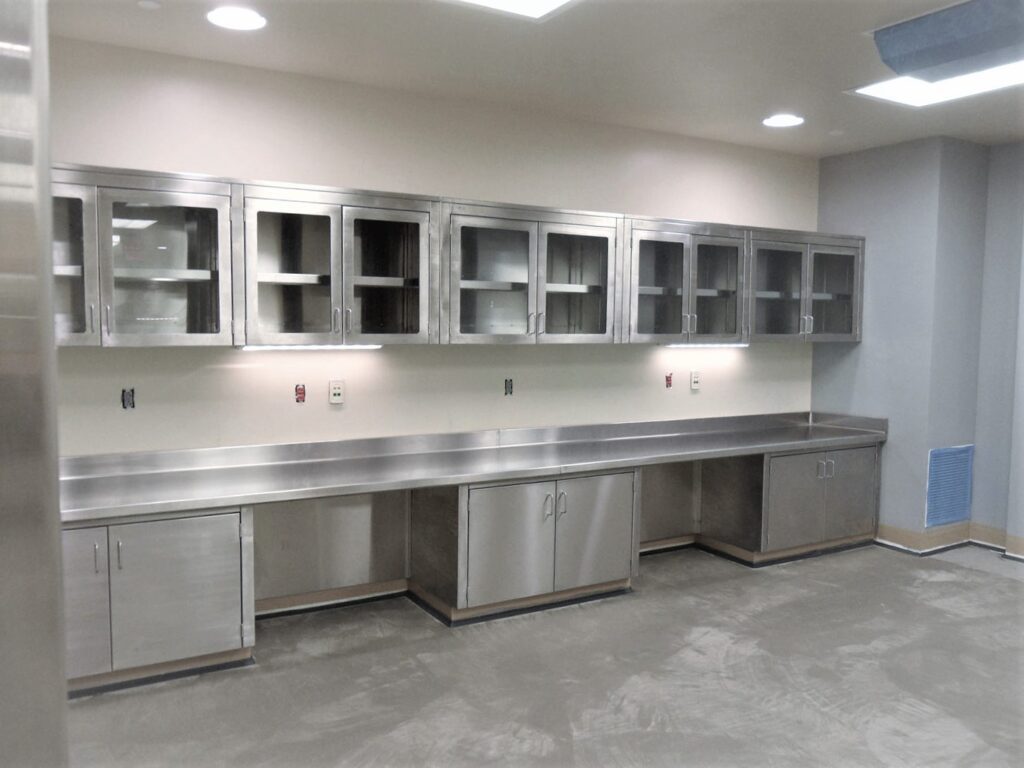Most steel cabinetry is made of heavy-duty, 12-gauge steel to provide heavy-duty construction for maximum strength and rigidity. Steel typically has a powder coat finish, which resists cracking, peeling, and chipping. Powder coat is abrasion, corrosion, and chemical resistant. This does not mean that it will not crack, peel, chip, scratch, or corrode, but it is more resistant than most other finishes. There has some special appeal of its own and some own features and characteristics as well. Now the question is how to configure this Stainless Steel Laboratory Casework and there have some procedures to clarify these configurations and all.
Stainless steel also contains varying amounts of Carbon, Silicon, and Manganese. Other elements such as Nickel and Molybdenum may be added to impart other useful properties such as enhanced formability and increased corrosion resistance. “In addition, 3D printers can also configure casework if you don’t have the steel materials” ‘Stainless’ is a term coined early in the development of these steels for cutlery applications. It was adopted as a generic name for these steels and now covers a wide range of steel types and grades for corrosion or oxidation resistant applications.
Modern casework is designed and constructed using high-quality material to withstand impact, moisture, and chemicals ensuring it will last for many years. Its durability is suited for many laboratory environments. In today’s shrinking lab space, flexible casework can be pieced together or separated to fit your space. You are no longer limited by traditional fixed casework. If your lab space grows, additional modules can be ordered to grow with your new layout. Constructed to the same specifications as our painted steel casework, Hamilton Laboratory Solutions stainless steel casework is ideal for high moisture areas or applications subject to frequent or intense cleaning. The tough stainless steel surface is also a logical alternative for areas subject to heavy abrasion, impact, heat, and general abuse.
Earlier we have discussed what should be the features and characteristics and benefits of this stainless steel material and here on this page, we will discuss what should be the configuration of this stainless steel material in these lab cabinets. Now how to configure. There should be some factors depending on which you can easily do the configurations and all. First of all, you have to do check durability and flexibility, and handling procedures. If this makes up to the mark then you can say that this material is up to the mark and can use also.
This is very easy to clean and will not chip and fade and rust-resistant as well as stain-resistant. These are very much resistant to heat and fire which is also a great beneficial value for using this type of material. Nowadays you can search in different markets and shops of this stainless steel and these have some special appeal and characteristics as well. So you have to check all the qualities and after that, you can easily purchase it from the market or from online that is why you can able to get good output from this material.
Best Ideas For Landscaping Your Home
